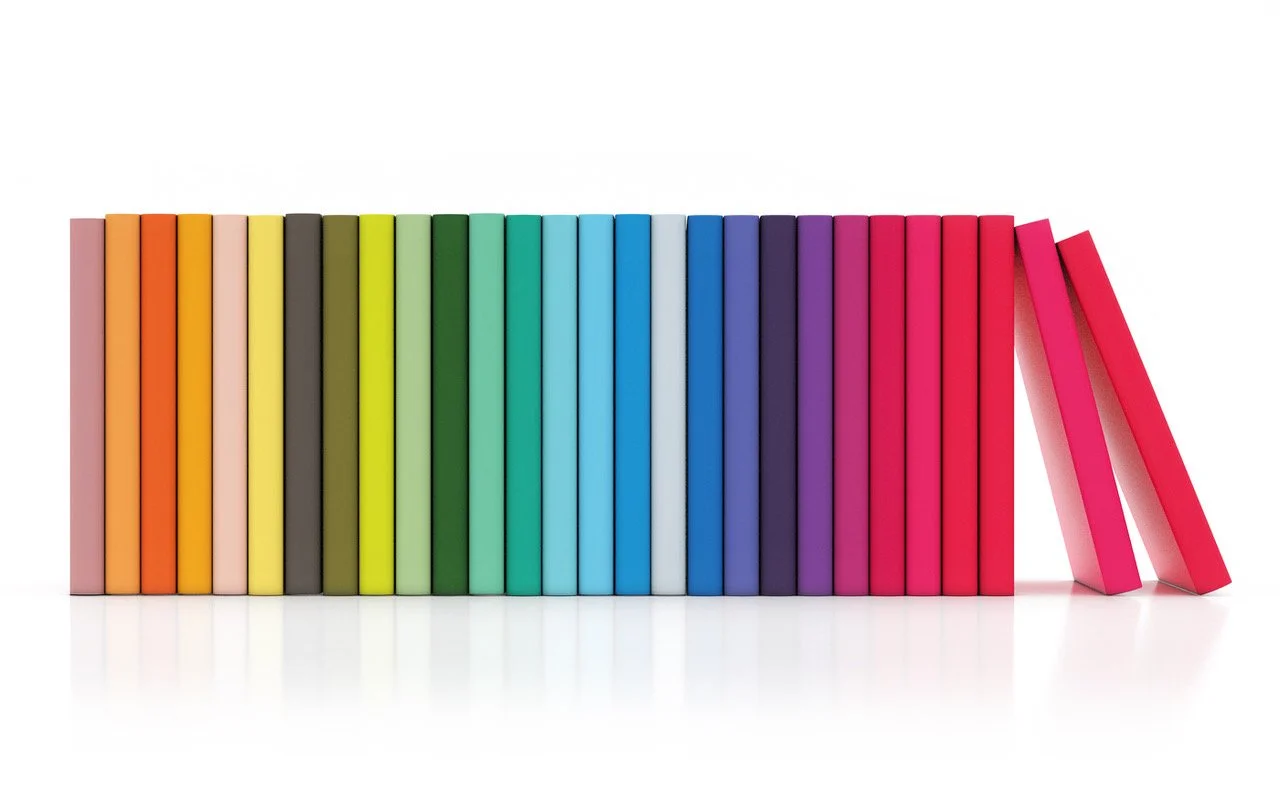The Top Four Types of Brand Names & How to Use Them
/What’s in a brand name?
While Shakespeare said a rose by any other name would smell as sweet, when it comes to naming a brand (or product), getting it right can make a huge difference to how you connect with your audience and how your brand builds over time.
This article isn’t about what a brand name is.
My guess is that, if you’re here, you already know what a brand name is and what you’re actually looking for is some guidance as to how to go about naming your brand.
So, let’s help you get started by looking at why naming your brand can be so hard, and how understanding the four top types of names can remove some roadblocks.
Why naming a brand or product can be so difficult.
Naming your brand or product can be hard.
This is because:
1. It requires a certain amount of creativity (which may or may not come naturally to you)
2. You want to make sure it conveys all the right things to your customer so they feel like your brand is one they can belong to
3. You want to get it right (so you don’t have to go about doing a costly rebrand later on)
4. It needs to be available (you might have a million great ideas, but they are all already taken)
5. You’re emotionally attached – unless you’re a huge corporation with a team of people responsible for naming, you actually care. You want to be proud of the name you give your brand because it’s an extension of who you are.
And it’s this last one – the emotional connection – that’s the big one.
Emotional connection is ultimately what we want to achieve, both for you and for your customers. But it can make naming your brand or product an incredibly difficult task.
Brand Name Types are a good place to start when naming your brand.
Whether you’re naming a brand or product that’s totally new, or considering a rebrand, understanding the different types of brand name will help you land on a brand name you’ll be proud of.
It will also help you create a name that will connect with your customers so you can create the brand advocacy and legacy every business owner dreams of.
Let’s take a look at the four main types of brand name so you can work out which one is right for you.
The Top Four Types of Brand Name
Some brand experts say there are six, some say there are seven, and some even say there are TEN different types of brand name.
But really, all those “extra” types usually fit in as a subcategory of one of the four primary types of brand name.
And they are:
Descriptive Brand Names
Acronym Brand Names
Invented Brand Names
Experiential Brand Names
Let’s take a look at each of these more closely.
Descriptive Brand Names
A descriptive brand name does exactly what you think it does – it describes what the product or service is or what it does.
This type of brand name suits traditional businesses where reliability and trust are important, because it makes it really easy for customers to know when to choose them.
Examples of Descriptive Brand Names include:
Toys’R’Us
PlayStation
Walt Disney Pictures
Commonwealth Bank
Australia Post
Acronym Brand Names
An acronym is an abbreviation formed from the initial letters of a series of words. Acronymic names are often an abbreviation of a descriptive name, and many larger companies have modernised their longer name to an acronym over time.
Often, acronyms also create a new word of their own, which can make them useful for making long brand names easier to say.
For example, National Aeronautics and Space Administration becomes NASA. Or the Bavarian Motor Works becomes BMW.
One of the pitfalls of acronyms is that they can be hard to give meaning to, or can lose meaning over time so bear that in mind if you decide to go down this path.
If you can come up with an acronym that also sounds like a word and is also representative of your brand story, then that’s the best type of acronym you can have for a brand.
Examples of Acronym Brand Names include:
NASA
BMW
GE
HP
KFC
MTV
Invented Brand Names
An invented brand name is a made-up word.
You can invent your name by merging two known words together, or even changing the spelling of a known word to create something new (Google is a great example of this – it comes from the word googol, which is an unfathomable number).
Invented names are often easier to trademark as they don’t have any prior meaning. But they are the hardest names to come up with (you’ll have to put your creative superpowers into action here) and they can be tricky to give meaning to.
But if you’re willing to put in the work to educate, build brand story and give an invented name meaning, it will definitely pay you back over time.
If you do decide to take on the creative challenge and invent a brand name, it helps to know that poetic sounding names tend to work the best and be the most memorable.
Examples of Invented Brand Names include:
Kodak
Twitter
Xerox
Adidas
Google
Dulux
Experiential Brand Names
Experiential brand names tend to be the strongest type of brand name because they build upon the experience or feeling a brand creates.
They set an expectation for customers of what it will be like to experience the brand and are often (but not always) a single word.
Experiential names work so well because over time, they can hold a deeper meaning that transcends the name itself. And, whilst it can take time for this deeper meaning to attach itself to the brand, if you’ve done the strategic brand story work, then that will always come.
Examples of Experiential Brand Names Include:
Apple
Nike
Virgin
What about Founder Names?
Favoured heavily in the fashion, automotive and fitness industries, for me, Founder Names really come under the banner of invented names, because they come with the same benefits and challenges.
Using a Founder Name also takes you down the path of considering whether you should be taking a personal brand approach, rather than a separate brand name approach. And this does open up a whole other area of marketing you need to consider.
Unless you already have a recognisable name that you can capitalise on, using your own name for your brand will take significant marketing effort in order to build brand equity.
It’s not impossible to do, but at least you know what you’re signing up for if you choose to go down this route.
Examples of Founder Names that have made the grade include:
Calvin Klein
Gucci
Ford
Kellogg’s
Can you combine brand name types?
Yes, you can.
And this is where some of the “extra” brand name types you might have read about come from. Other brand specialists might give them their own categories, but they are all created by combining two (or more) of the four main brand name types.
In fact, my own brand name – Heart Content – is a combination of the descriptive and experiential name types.
Do these name types apply to products as well?
Absolutely. You can use the same naming conventions for naming your products and services as you do with naming a brand.
If you’re naming products though, you’ll need to consider how the name can be applied to a range of products (if there will be more than one) and/or how it will relate both to your primary brand name and the suite of products in your offering.
There is more to a brand than its name.
The four types of brand name are a great place to start your journey in naming your brand.
But it’s important to remember that there’s more to a brand than its name.
Your brand name is only one element of the whole brand experience you’ll need to create for your customer in order to create brand advocacy and a brand that will stand the test of time.
The rest is driven by brand story strategy – vision, mission, values, points of difference, tribe and personality. And when you get these things right, you can give value to any brand name you choose.




